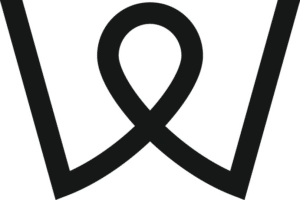The results of Prolific North’s survey on the topic of marketing to over-50s are here – demonstrating just how contentious the topic of how the age group is communicated with is.
As part of our roundtable, ‘The over-50s market: underrepresented or misrepresented?’, which took place in association with Accord Marketing on September 12th, we ran a survey to inform the conversation – which was lively, engaging and informative.
Accord and Prolific North asked respondents to let us know what they thought of how the group – who number 23 million and have the highest levels of disposable income – are communicated to and about, in marketing.
The survey received 86 responses from professionals across the North, with a range of age groups represented in the responses.
And one lucky survey respondent, UCLan’s Madeleine Melling, is the winner of a £100 Amazon voucher courtesy of our event partners for the roundtable Accord.
Accurate representation important but far from implemented
Asked whether it was important to accurately represent the over-50s age group in advertising, 92% of those surveyed said it was. “It’s easier to get people to engage with something if they see themselves represented”, said one.
However, at the same time, 38.4% of respondents said that, in advertising, over-50s are represented negatively. A further 38.4% said that the representation of over-50s in marketing was neutral.
Strikingly, more than 40% of our surveyed sample could not name even a single advert they could remember that positively portrayed over-50s. Even among those who had, the general consensus was that most adverts aimed at the age group focused on “life insurance, equity release, pensions, funeral costs… [which] seem patronising”.
“Intelligent creative can compensate for a lack of first-hand knowledge in the hands of a younger person,” said one respondent who said representation was negative, “although the absence of older faces at sub-board level fosters an implied sense of their low value, which must contribute on some level to inaccurate and negative assumptions about the over-50s.”
Those who could recall adverts positively showed trends in the ads they remembered. L’Oreal’s advert featuring Helen Mirren clearly sticks in the mind of many, with 9.3% mentioning the brand and 7% mentioning Mirren herself.
Engaging with creative work, even with the best intentions, isn’t free of the biases identified by some survey respondents, with 68% of agency staff and 75% of in-house staff reporting being asked by clients to target a younger audience.
Lucy Boland, Agency Director at Accord, who supported the survey and sponsored the roundtable that drew on its results, said: “We are delighted to see that such a wide range of age groups have responded to this important survey. The results demonstrate that, across different generations, this is a topic that a lot of people clearly feel very passionately about.
“92% of respondents said they believed accurate age representation in advertising was important; yet 71% still said they felt pressure to target a younger audience.
“As a mature marketing specialist agency, we have seen first-hand that there is a lot of stereotyping and misrepresentation prevalent within marketing targeted at those aged 50 and above. Fortunately, I believe the tide is starting to turn and as an industry we are starting to realise that to be fully inclusive and accurately represent our diverse society, we must become more age-positive – but we still have a long way to go before we eliminate ageism within advertising.”










